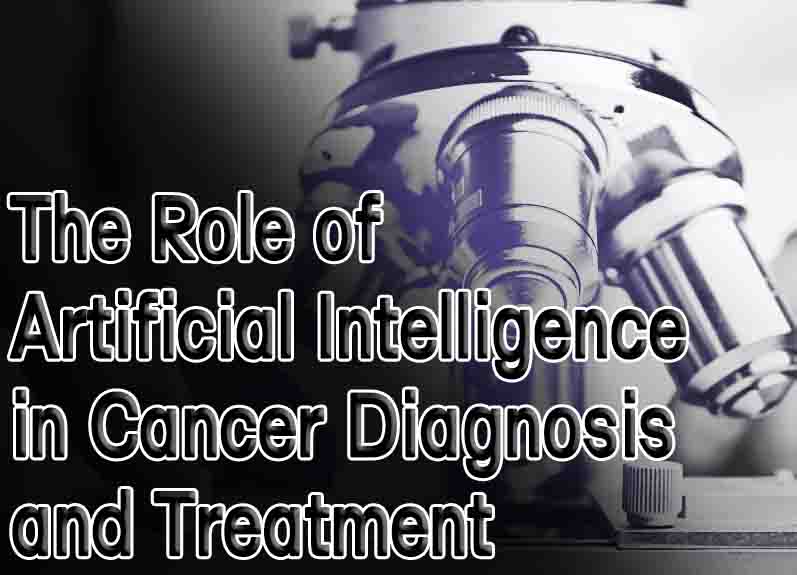Artificial Intelligence (AI) has revolutionised various industries, including healthcare. The potential for AI in cancer diagnosis and treatment is immense. AI technologies enable clinicians to identify cancer early, predict the likelihood of cancer recurrence, and design personalised treatment plans. This blog will discuss the role of AI in cancer diagnosis and treatment and how it is transforming the healthcare industry.
Table of Contents
Early Detection of Cancer
Cancer is deadly, and early detection is vital to successful treatment. Traditional cancer screening methods involve radiology scans, biopsies, and laboratory tests. However, these methods can be time-consuming and expensive and may not always detect cancer at an early stage. AI has the potential to overcome these limitations and improve cancer screening.
AI-powered tools can examine large amounts of patient data and identify patterns that may indicate cancer. These tools can use algorithms to detect cancer cells in medical images, such as X-rays, CT scans, and MRIs, with higher accuracy rates than human radiologists. Moreover, AI algorithms can analyse genetic data to identify patients at high risk of developing cancer. As such, any cancer hospital in chennai that you may find will be leveraging AI technology for early cancer detection.
Precision Medicine
Precision medicine is an approach to cancer treatment that aims to deliver personalised treatment based on a patient’s unique genetic makeup. AI can play a critical role in precision medicine by analysing vast patient data to identify molecular signatures that can inform treatment decisions.
AI algorithms can analyse patient data to identify the genetic mutations that drive the growth of cancer cells. This information can be used to design targeted therapies targeting cancer cells. Moreover, AI algorithms can analyse patient data to predict how the cancer cells are likely to respond to specific treatments, allowing clinicians to select the most effective treatment plan. Chennai’s cancer hospitals use AI-powered precision medicine tools to improve cancer treatment outcomes.
For example, the Cancer Institute (WIA) in Chennai uses AI algorithms to analyse patient data and design personalised treatment plans for cancer patients. This has resulted in better treatment outcomes and improved patient satisfaction.
Predicting Cancer Recurrence
The biggest challenge in cancer treatment is predicting the likelihood of cancer recurrence. Cancer recurrence can occur even after successful treatment and can be difficult to detect early. However, AI has the potential to overcome this challenge by predicting the likelihood of cancer recurrence.
AI algorithms can analyse patient data to identify patterns indicating a high risk of cancer recurrence. For example, AI algorithms can analyse medical images to identify features associated with cancer recurrence. This information can be used to monitor patients for signs of recurrence and adjust their treatment plans accordingly. As such, the best cancer hospital in chennai will be using AI-powered tools to predict the likelihood of cancer recurrence.
The Future Outlook
The future outlook for AI in cancer diagnosis and treatment is promising. As AI algorithms become more sophisticated and the availability of high-quality patient data improves, AI-powered tools will become even more accurate and effective in diagnosing and treating cancer. Moreover, AI-powered tools will enable clinicians to develop personalised treatment plans based on a patient’s genetic makeup, leading to better treatment outcomes and patient satisfaction.
AI can transform cancer diagnosis and treatment by enabling early detection, precision medicine, and predicting cancer recurrence. So, if you select a cancer hospital in chennai, it will already be leveraging AI technology to improve cancer treatment outcomes, and the future outlook for AI in cancer diagnosis and treatment is promising. However, some challenges need to be addressed, such as the standardisation of AI algorithms and the need for high-quality patient data. With continued research and development, AI will become an increasingly powerful tool in the fight against cancer.

